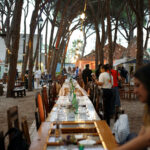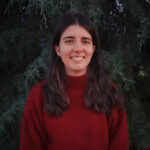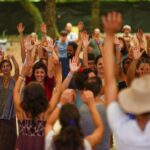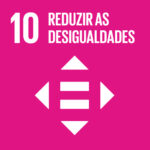
Chefs on Fire. In this festival, leftover food is transformed into energy
Here comes another edition of Chefs on Fire, one of the most important gastronomic festivals in the country. In addition to the sustainability actions that
We didn't find any happenings mapped to your criteria.
Try the traditional search to find articles not yet mapped with RUA.
We didn't find any happenings mapped to your criteria.
Try the traditional search to find articles not yet mapped with RUA.
We didn't find any happenings mapped to your criteria.
Try the traditional search to find articles not yet mapped with RUA.
We didn't find any happenings mapped to your criteria.
Try the traditional search to find articles not yet mapped with RUA.
Zero Emissions World mobilizes capital for positive social responsibility initiatives and will start with two projects in Mozambique, always based on gaming.
Zero Emissions World (ZEW) is a 100% Portuguese non-governmental organization that is developing a set of actions to accelerate the United Nations Sustainable Development Goals (SDGs) using a “gaming” format.
The initiative will have “Leagues”, communities of people led by a brand or an influential personality who, “by promoting their missions, will mobilize their communities digitally for social and climate action. The initiatives are therefore supported through crowdfunding by all the people who want to see and be part of highly impactful projects for our society and planet,” explained Hugo Ortiz, co-founder and CEO of ZEW, to Jornal de Negócios. Jornal de Negócios.
Its mission is to eliminate the barriers that limit society’s active participation in socio-environmental projects, boosting collaborative efforts by connecting different players. Investors will be able to monitor their impact in real time, receiving information about their investment.
According to the website, ZEW wants to be a community of half a billion people committed to creating a better planet by 2030.
The official launch is scheduled for later this year, with the aim of positioning itself “as a platform that aspires to connect credible NGOs, celebrities, brands and, in particular, generations Z and Millennials. These groups are the main focus of our mission, ready to witness and get involved in change through an innovative, gamified digital experience with total transparency,” says the CEO.
ZEW is starting two leagues in Mozambique, whose missions work with the SDGs agenda and have a proven social and environmental impact.
The first project aims to light up the rural community of Nhampuepa, in Sofala, by providing electricity through solar panels and batteries installed in a pre-primary school and a health clinic. “More than 100 families will receive rechargeable LED lamps, lighting up the evenings and bringing joy to children who can study after sunset. Mothers will benefit from maternity kits, significantly improving health care. In addition, we will offer solar energy training to the community and build a soccer field, strengthening community ties,” says Hugo Ortiz.
The other project aims to combat hunger and chronic malnutrition, which affect 37% of children in the Kutsac region, by revitalizing local agriculture through the use of greenhouses to produce fresh vegetables. “As well as nourishing the community, we aim to scale up this production for sale, connecting it with local entrepreneurs who distribute food throughout the province. This effort will be complemented with training for young people in agriculture and digital technologies, preparing them for future opportunities,” explains Hugo Ortiz.


Here comes another edition of Chefs on Fire, one of the most important gastronomic festivals in the country. In addition to the sustainability actions that

From July 31st to August 4th there will be another edition of the Tradidanças festival, the one that gets everyone of all ages dancing for

Greenpeace opens office in Portugal and brings the icebreaker Artic Sunrise. The organization’s focus will be on fighting fires and protecting biodiversity, especially the oceans.

This article addresses an action that promotes the reduction of inequalities, empowerment, and the social, economic, and political inclusion of all, regardless of age, gender, disability, race, ethnicity, origin, religion, or economic or other status.
 To discover businesses that are actively working to contribute to this Sustainable Development Goal, click here.
To discover businesses that are actively working to contribute to this Sustainable Development Goal, click here. To read news, interviews or tips related to this Goal, click here.
To read news, interviews or tips related to this Goal, click here.Esta publicação também está disponível em:
![]() Português (Portuguese (Portugal))
Português (Portuguese (Portugal))

